Taiwan abandons plans to buy ‘costly’ US anti-submarine helicopters
Taiwan has abandoned plans to purchase advanced anti-submarine helicopters from the United States, saying the price is too high.
The self-ruled island’s defense minister Chiu Kuo-cheng told the parliament on Thursday that the chopper deal was unlikely to make headway as the deal was too expensive.
“The price is too high, beyond the scope of our country's ability," he told the lawmakers.
Local media earlier this year had reported that the deal could fall through as Washington concluded that the choppers were not in line with the island's “asymmetric warfare” needs.
The self-ruled territory – claimed by Beijing – had plans to buy 12 MH-60R anti-submarine helicopters, built by the Sikorsky unit of major US weapons maker Lockheed Martin Corp.
Two other arms purchases from the US by Chinese Taipei – M109A6 Medium Self-Propelled Howitzer artillery systems, and mobile Stinger anti-aircraft missiles – have also been delayed due to Washington’s efforts to send more weapons to Ukraine.
The Raytheon Technologies' Stingers are in high demand in Ukraine – where they have been used against Russian aircraft – amid reports that US supplies of the missiles have shrunk and there are significant hurdles to producing more of the anti-aircraft weapons.
The US has so far shipped more than 1,400 Stingers to Ukraine in recent weeks.
Chiu, however, insisted that Taipei had already signed the contract for the Stingers and paid for them and that it would press Washington to deliver them.
"We don't view arms sales as a trifling matter, and we have backup plans," he said without elaborating.
Taiwan's defense ministry admitted earlier this week that the delivery of the Stingers may be delayed due to limited US production and its high demand amid the raging conflict in Ukraine.
Washington had approved the sale of 250 stinger missiles to Chinese Taipei under the administration of former US President Donald Trump in 2019 and was due to complete the delivery by 2026.
Taiwan says the US has offered it alternatives to the M109A6, including truck-based rocket launchers made by Lockheed Martin called the High Mobility Artillery Rocket System, or HIMARS.
'Asymmetric warfare'
President Tsai Ing-wen has championed the concept of "asymmetric warfare", which involves developing high-tech, highly mobile weapons that are hard to destroy and can deliver precision attacks.
The US, which is engaged in a war against China, has been pushing Taiwan to modernize its military to help it become a "porcupine" that is hard for China to attack.
Chiu said there were many "enemy ships" in the waters around Taiwan recently, which "in principle stood off" with Taiwanese forces.
Eight Chinese naval vessels, including the aircraft carrier the Liaoning, passed between islands in Japan's southern Okinawa chain on Monday, an area that is to Taiwan's northeast.
Taipei's defense ministry spokesman Sun Li-fang said the deliveries of other US weapons to Chinese Taipei could also be affected.
The island is in touch with the US to ensure that deliveries of new F-16 fighter jets take place on schedule before 2026, he said.
The first major arms sale to Taipei under US President Joe Biden was last August, which saw the approval of 40 Howitzer artillery systems.
Last year, the US sold arms to Chinese Taipei that included drones and coastal missile systems.
Chinese Taipei falls under China's sovereignty, and under the "One China" policy, almost all governments across the globe — the US included — recognize that sovereignty.
But, in violation of its stated policy, Washington has ramped up involvement in the island's affairs and is its largest weapons supplier.
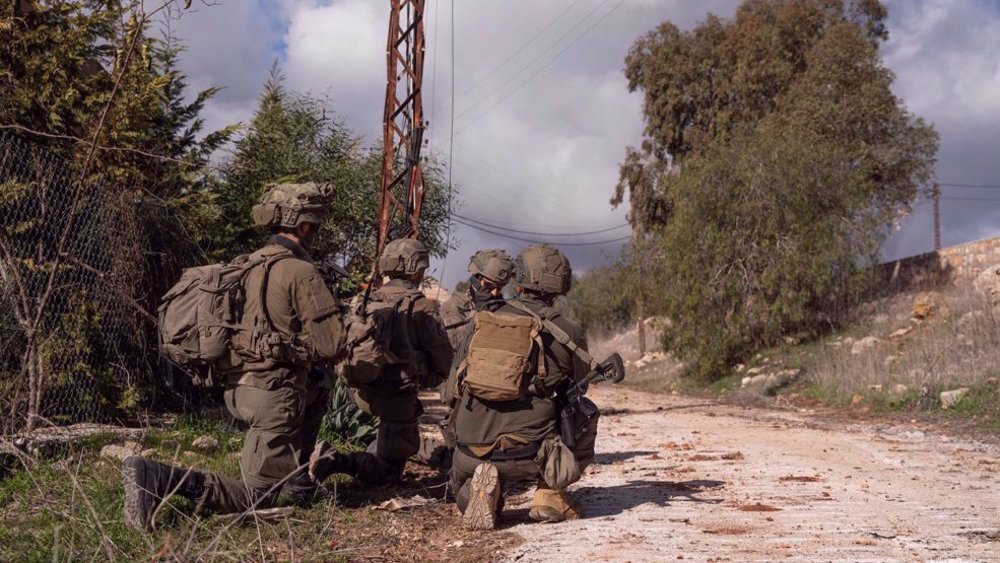
US, France want mercenaries deployed in south Lebanon: Report
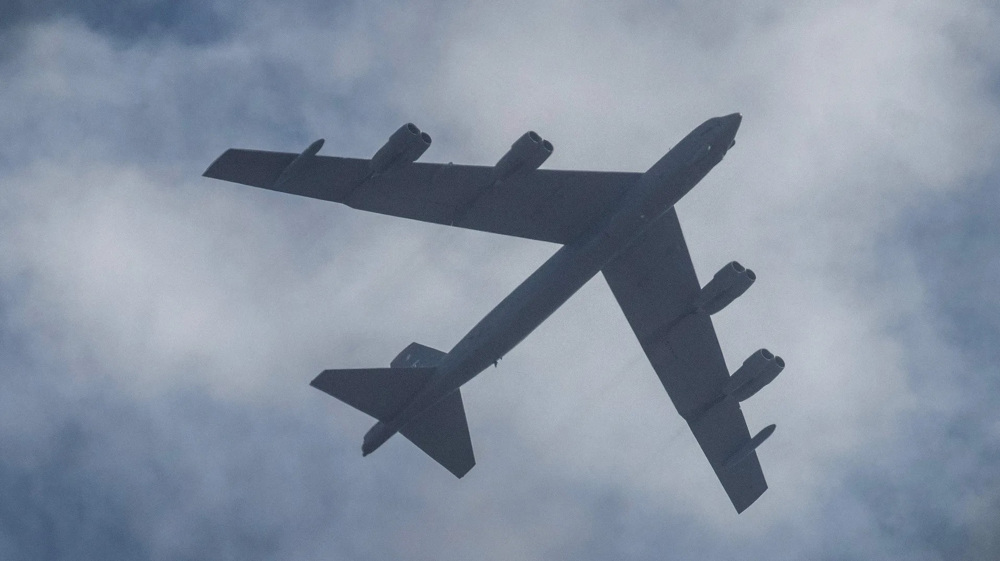
US bombers fly over Mediterranean Sea as delivery of heavy bombs to Israel announced
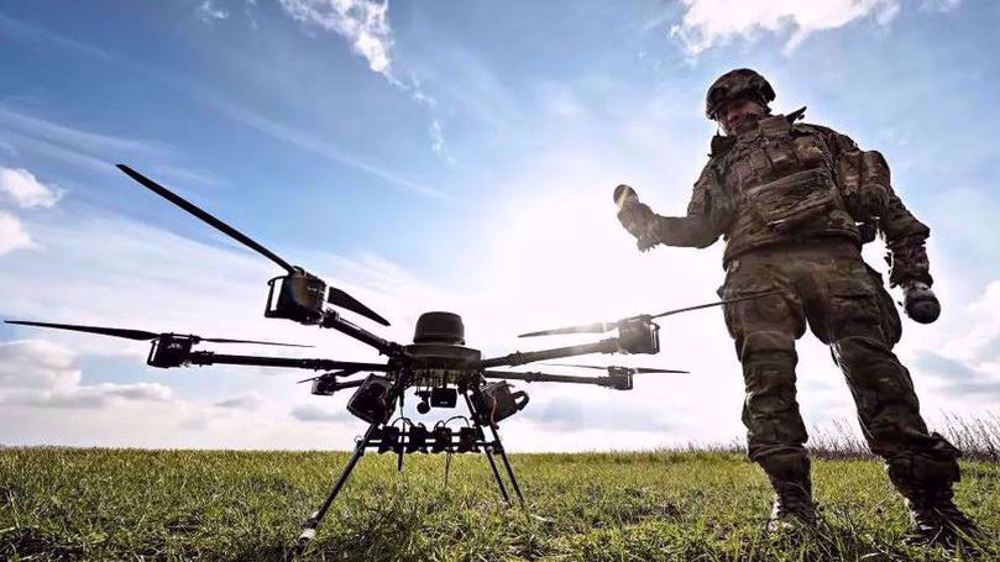
Leaked documents reveal US strategies to prolong Russia-Ukraine war
IRGC unveils new homegrown smart missiles, drones drill
Iran launches project to extract, purify helium from natural gas
Qatari Emir arrives in Tehran for deeper cooperation talks
VIDEO | Press TV's news headlines
Israel to release longest-serving Palestinian inmate Nael al-Barghouti
IRGC dismantles multiple US, Israeli spying networks in northern Iran
Two Israeli soldiers flee Amsterdam over arrest warrant fears
Iran rebukes US 'colonial' plan for forced relocation of Gazans


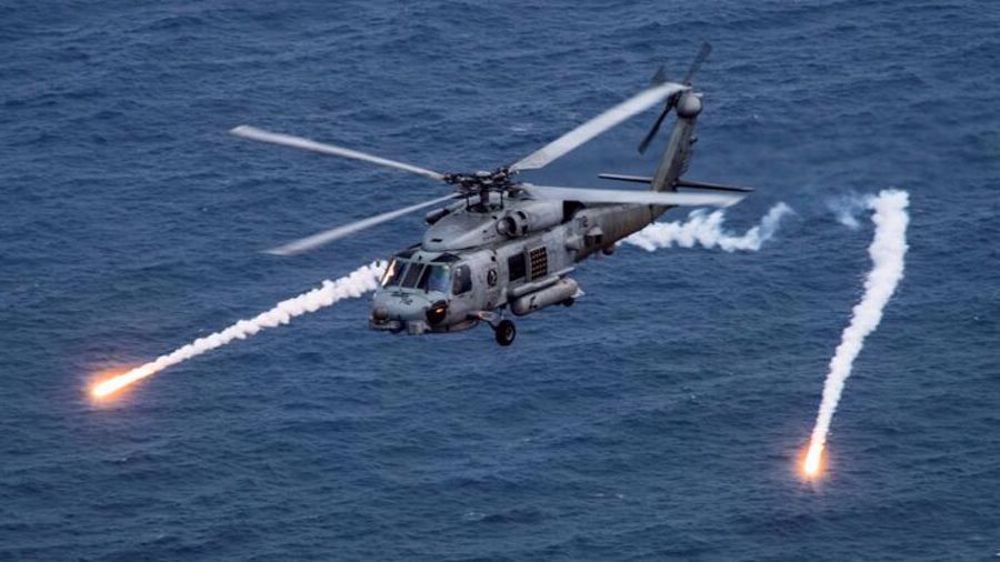
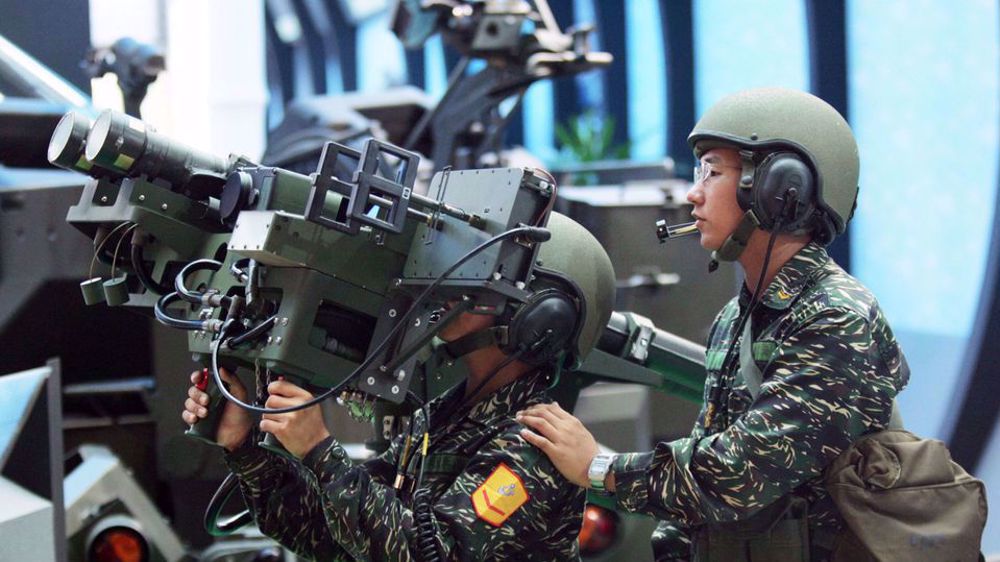
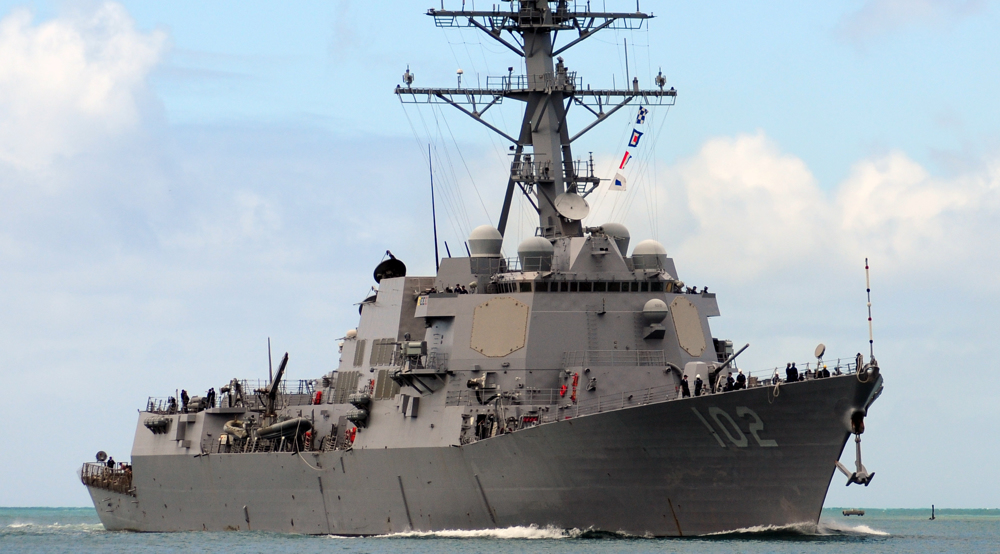



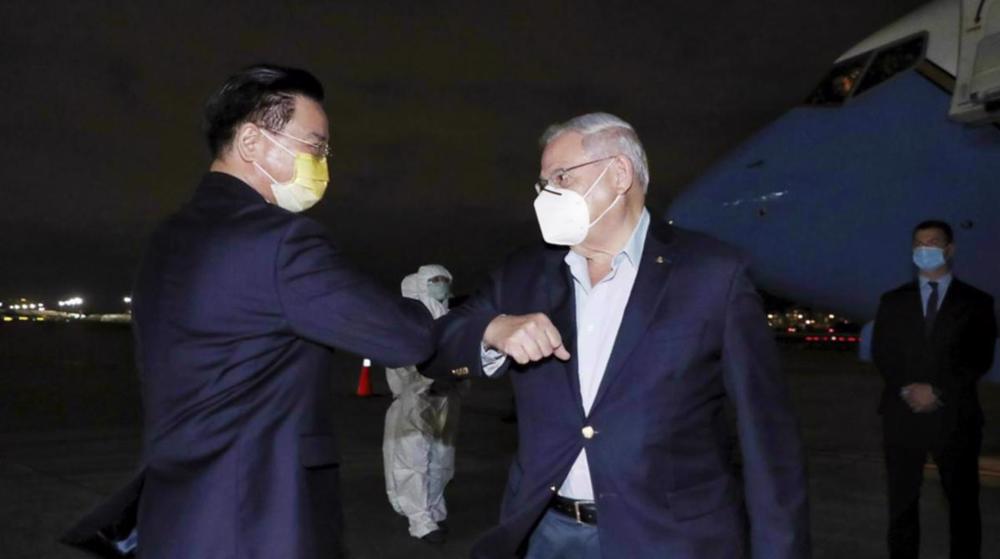

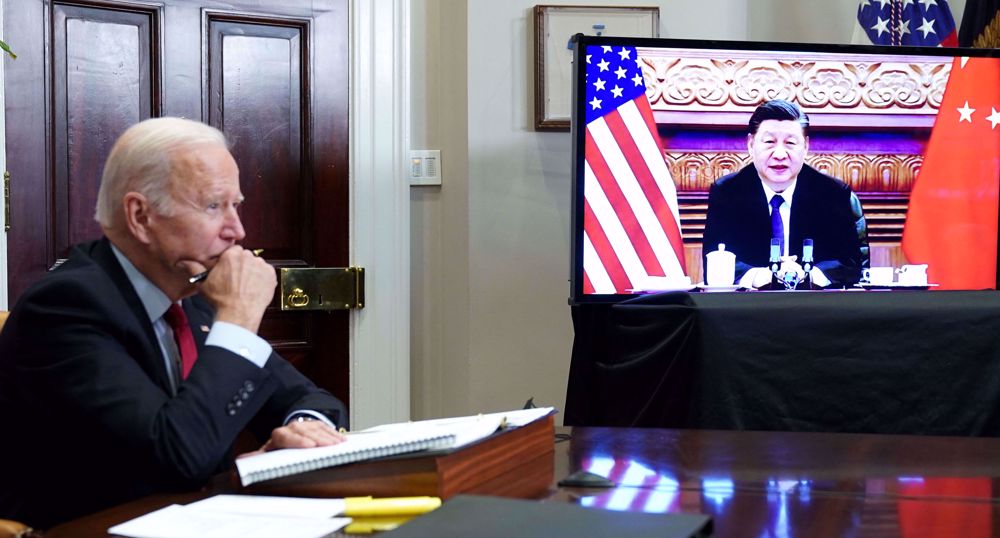

 This makes it easy to access the Press TV website
This makes it easy to access the Press TV website